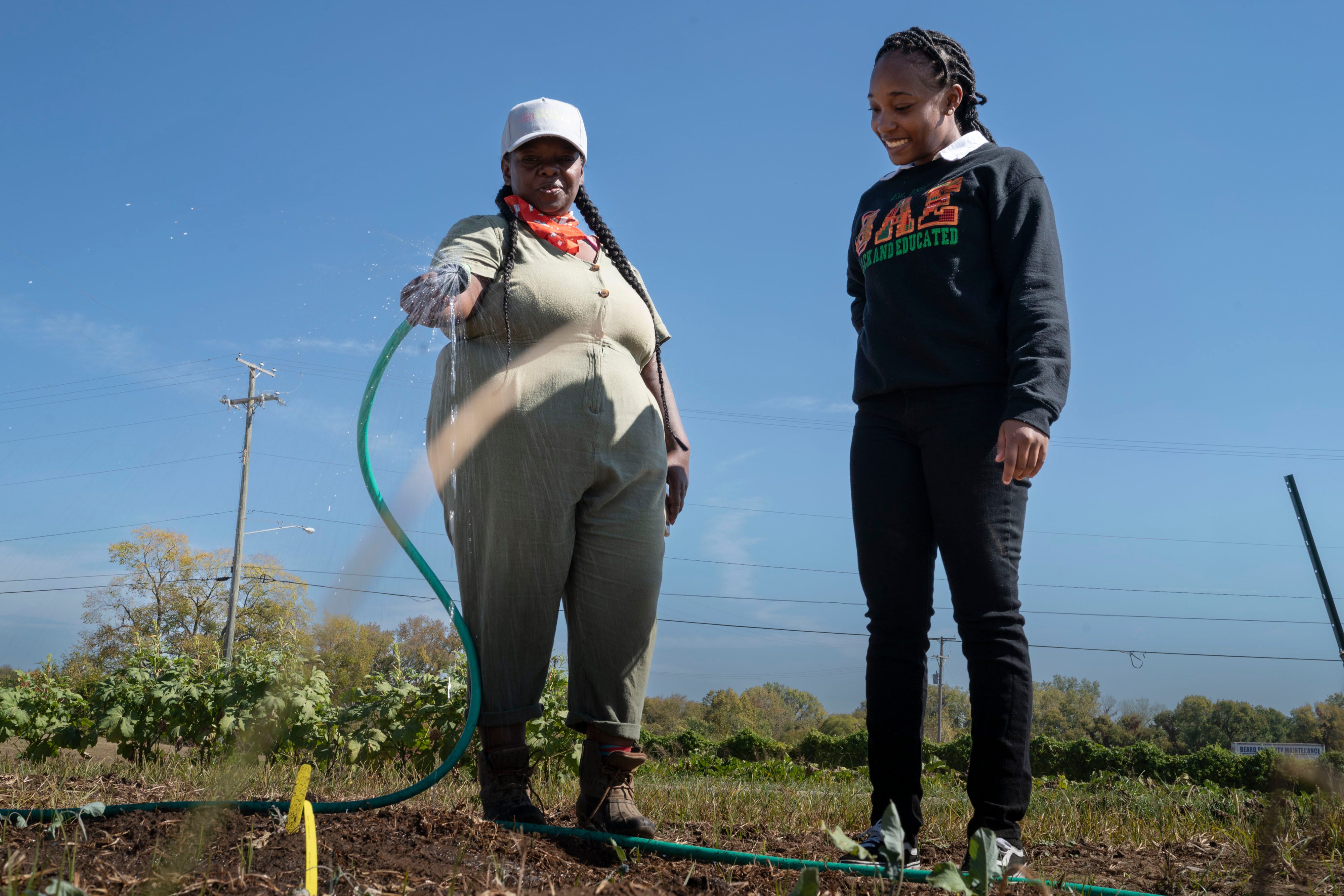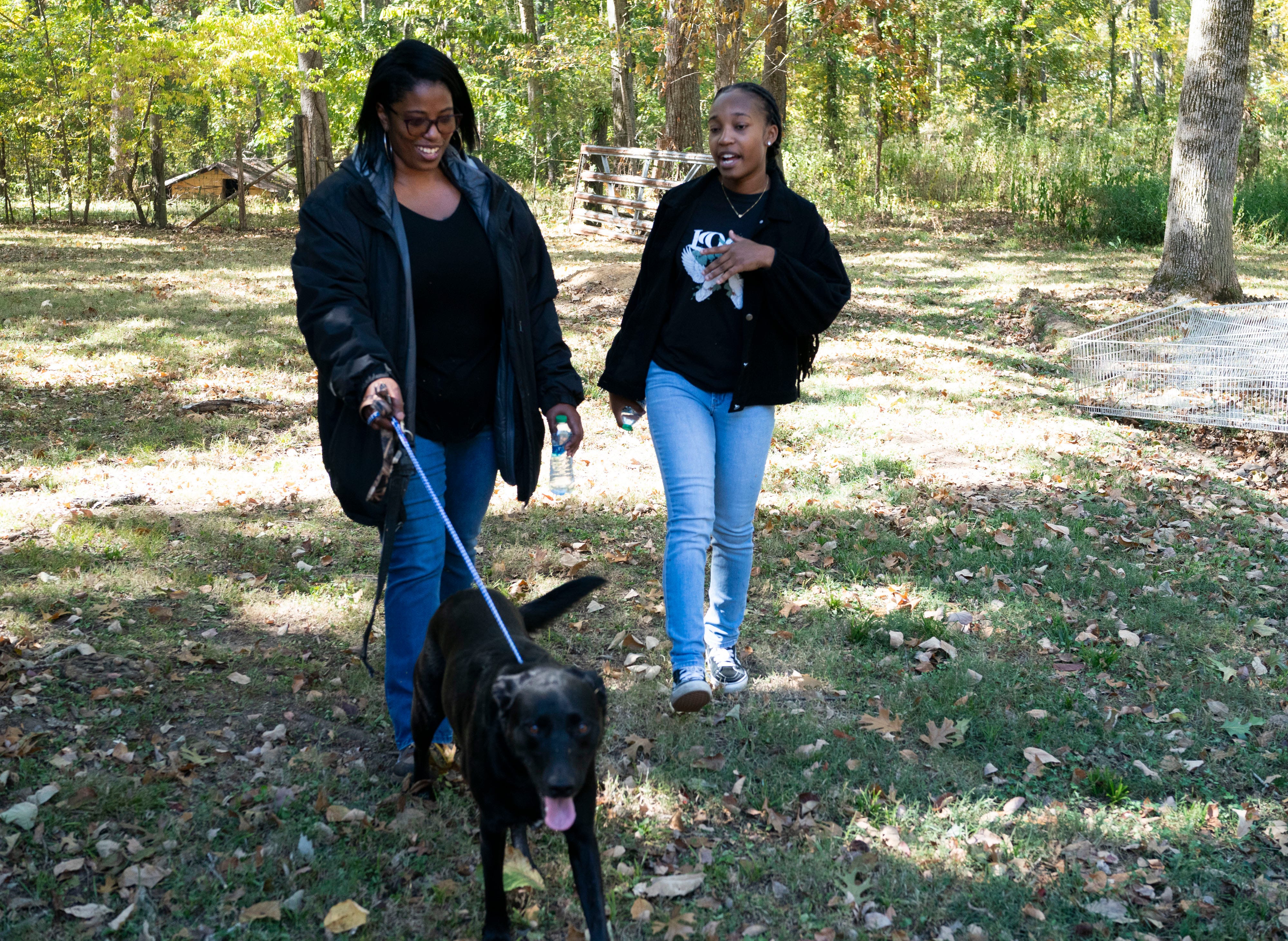
Growing up a little Black girl in the South, I never dreamed of becoming a farmer. The career path wasn’t among the many my parents exposed me to.
Until recently, I associated Black people and farming with the pain and trauma of racism and slavery. All that I knew about the agriculture industry was what I learned in grade school, which was very little.
I found nothing satisfying or sustainable about it.
Then I met Monica Wilder.
In 2018, Wilder sold her house and purchased five acres in Murfreesboro, right outside Nashville. She lives with her sons on the land, where they hope to produce tomatoes, onions, peppers, squash and other crops next spring.
I also met Bridget Bryant, who farms a half-acre on Tennessee State University’s campus. She grows okra, squash, black-eyed peas, cherry tomatoes, collard greens and herbs that feed her family and others.

While Bryant comes from a family of farmers, many of whom inspired her, Wilder’s farming journey is a case study in trial and error.
Their journeys are different, but their drive and diligence, passion and patience are identical. Using their hands, they strive to achieve sustainability in their communities through the love and labor of land.
These women are just two of the farmers featured in “Uneven Ground,” a project initiated by the South Region of the USA TODAY Network. The series seeks to amplify the voices of Black people who, despite historical setbacks and stereotypes, choose to farm, and often succeed.
Even when the historical data is against them.
In 1910, Black people owned nearly 16 million acres of American farmland. But by the 1990s, they had lost 90% of that land, compared with 2% of land their white counterparts lost during the same period.
No wonder Black farmers in 2022 make up only about 1.4% of the nation’s 3.4 million producers of vegetables, soybeans, sugar and other crops and livestock.

Despite the number of Black farmers decreasing over time, their desire to farm has not. Ask Wilder and Bryant, graduates of the New Farmer Academy, a certification program for people with an interest in becoming agricultural entrepreneurs initiated in 2014 by the college of agriculture at Tennessee State.
"As a Black woman, if you say that you're a farmer, people assume it's a hobby," said Bryant. "It's not a hobby.... I know how to take a seed and feed my family."
My eyes have been opened to a community of people who look like me. They inspired me. And I believe they will inspire you, too.
Kyra Watts, an Atlanta native, is a graduate of Florida A&M University, and a writer and editor on the opinion and engagement team at The Tennessean in Nashville. She can be reached at kwatts@gannett.com or @Kyrawatts98 on Twitter.

More in this series
Uneven Ground: The exceptional stories of the South’s Black farmers